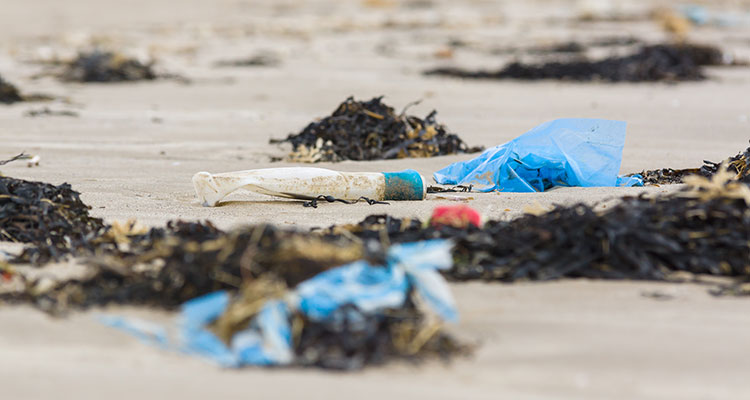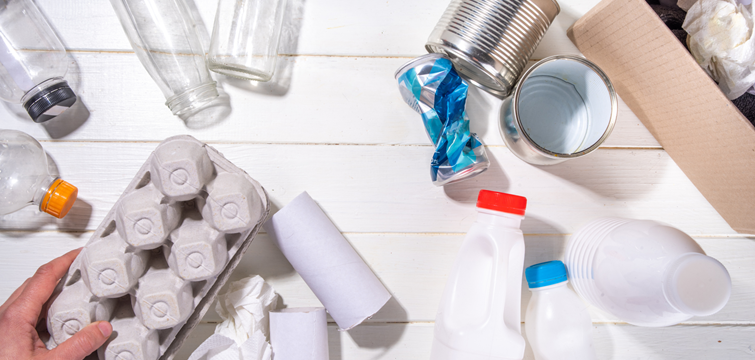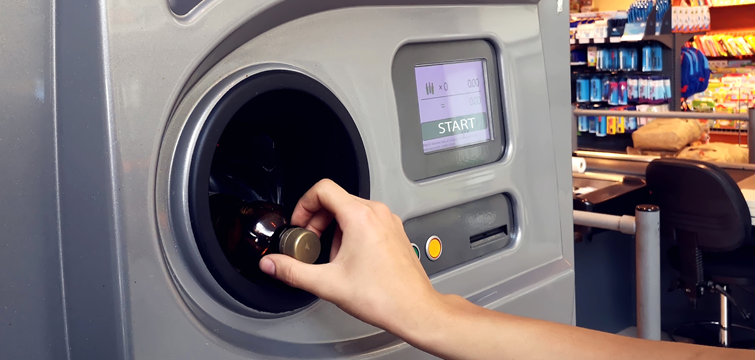We’re seeing more positive changes around single-use plastics in England, as last month the government confirmed that they will be extending the plastic bag charge.
The Department for Environment, Food and Rural Affairs (Defra) announced on 31 August that the plastic bag charge will now be applicable to all retailers as of April 2021 and the existing charge of 5 pence will be doubled to 10 pence.
This decision comes following the tremendous 95% reduction we have seen in single use plastic bag purchases since the 5p carrier bag fee was introduced in 2015. Now, the hope is that this success can be mirrored by all retailers.
Devastating impact on marine life
One prevalent concern with plastic waste is the devastating impact on marine life, once it enters our oceans. The Environment Secretary George Eustace has said that this decision to take “bold and ambitious action to tackle this issue head on” has been taken in reaction to this, as an extension of the already positive impacts we have seen in regards to plastic bag usage.

This move has also been supported by The Marine Conservation Society, with the Head of Clean Seas, Dr Laura Foster, commenting “It’s encouraging to see the government take further steps in reducing our reliance on single-use plastic bags. Since the introduction of the five pence carrier bag charge, we’ve seen a more than 60 per cent drop in the number of plastic bags on the UK’s beaches.”
Simple changes are important
It is now more vital than ever that we as a nation stop choosing - whether out of habit or convenience - single use plastics, and collectively direct our efforts towards a more circular economy. The hope with the extension of the carrier bag fee will be that consumers are reminded in all areas of their consumption that these simple changes are important and can have a big impact.
Looking beyond just carrier bags, a new report from Greenpeace has also set out how supermarkets can continue to lead the way in reducing single-use plastics, recommending how they can cut throwaway plastic by half over the next five years.
Unpacked: How supermarkets can cut plastic packaging in half by 2025 is a pioneering report, which utilises data from across the entire UK supermarket sector and applies never before used calculations. This data uses 2019 figures, enabling Greenpeace to model the amount of plastic packaging UK supermarkets are producing on an annual basis.
Nina Schrank, Greenpeace UK’s Plastics Campaigner, points out that this is the first time this mapping process has been used, and that following the report’s recommendations could be invaluable to the UK in actioning vital changes “[the report] kick-starts one of the most important environmental questions of our time: How and where can we reduce throwaway packaging? And fast.”
Although the challenge that single-use plastics, and indeed our behaviours around them, poses is a significant one, Greenpeace are optimistic that this report will be a turning point in our nation’s unhealthy relationship with throwaway plastics, with supermarkets leading the way.
Concrete recommendations
A valid question to ask at this point might be ‘How is this report different from all the information that has come before?’. Greenpeace have focused on a few key areas which have previously been neglected, in order to make concrete recommendations. These are:
Investigating the number of plastic components used
Previous studies have not looked into the minute detail of components such as individual lids, labels and film coverings. This report does so, offering further insight into problematic materials and how they can be reduced.
Categorising products
According to environmental campaigners, a lot of the existing information did not categorise plastic products, which would allow producers to see which product areas need the most improvements from a sustainability perspective.
Offering solutions
Greenpeace says its report explains a model of how UK supermarkets can cut their single-use plastics by 2025, by using up to date calculations. It also identifies ‘hotspots’ which allows producers and retailers to see which product categories are the worst offenders, and where there is the most potential to cut down.
These focal points of the report have enabled Greenpeace to identify 13 categories (out of a total 54) where most significant changes can be made, and are recommending supermarkets prioritise these.

These categories included bottled drinks, household cleaning products, fruit and vegetables and bath and shower products - all products which the majority of us would agree we cannot do without! By honing-in on the categories which have the biggest impact, Greenpeace have set out a challenging yet achievable portfolio for supermarkets to focus their energies into to see tangible change.
Transformational thinking and collaboration across the industry
UK supermarkets have already engaged with the report. Claire Hughes, Head of Quality and Innovation at Sainsbury’s has said they are already making good progress, and “in order to reach this ambitious target, we need transformational thinking and collaboration across the industry. We will work alongside our suppliers, manufacturers, customers and other retailers to reduce the amount of plastic across the supply chain, whilst also investing in research and development.”
So, there is optimism that this new report, alongside the great work already done by supermarkets and other retailers with the plastic bag fees, can have a huge impact on our Nation’s single-use plastic waste, and the damage it does to this environment. What is clear is that this is not just a call to action for retailers, but to all of us to keep making conscious decisions to re-use.
Helping to unlock the power of your data
Ecosurety data analysts help many major producers to unlock the potential of their data to help them work towards the existing UK Plastics Pact targets, for example. To find out how we could help your organisation identify where to reduce problem packaging materials, please contact our team.

Victoria Baker
Discovery Manager
Victoria is our Collections Manager, overseeing the collections of WEEE and Batteries. Her main focus is integrating Collections as key part of compliance, to grow recycling streams in these hard to recycle areas. She has previously worked in events marketing and the charity sector, helping to fundraise for Alzheimer’s and dementia causes across the UK and abroad.

Latest News

Draft packaging EPR regulations sent to European Union and World Trade Organisation
By Louise Shellard 02 May 2024
European Parliament introduce regulations to improve packaging sustainability
By Louise Shellard 30 Apr 2024
Q1 2024 recycling data reveals good performance in most materials
By Nigel Ransom 29 Apr 2024
Deposit Return Scheme for all UK nations set for 2027
By Louisa Goodfellow 26 Apr 2024

